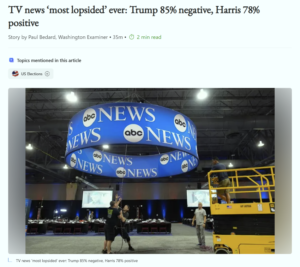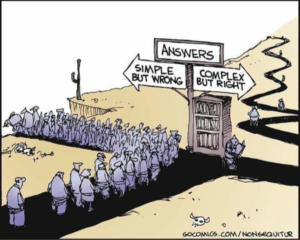How honest are we with ourselves about how we feel or think? My father was loyal to the Ford car brand … to the point he could not buy a General Motors car even if it was better or cheaper. When I bought a Pontiac Firebird as I graduated from college he bristled with disagreement, and I still remember when he took it for a spin and then dismissed it as a toy. I admire any company that can create that kind of loyalty.
My wife and I now feel the same about the Lexus car brand, having bought the first LS400 to come onshore and having bought new models about every 10-15 years since then. However, we would freely buy another car brand if we liked it better … but we don’t. We just looked at every alternative once again.
In like manner, people seem to become brand loyal to their political parties as well. I respect that as well, and as I have conversations about political points of view, I find it fascinating to see how people positively interpret things that most everyone else knows are wrong.
After all, everyone knew President Biden’s mental and physical acuity was falling rapidly, but it was only after that debate that the painful truth needed to be faced. Once again, I understand and admire loyalty, but in this case our country was at risk. Yet, everyone within the party ranks insisted President Biden was fully capable. Similarly, look at the 538 polls about Vice President Harris’s approval rating at the top of this blog. The sharp uptick occurred when she was designated as the Democratic candidate for POTUS. What changed? Was it bias or brand loyalty that kicked in?
Whether it was the word salad or her irritating witch-like cackle, most Americans simply found her unfavorable … that is, until she was the candidate for the highest office in the land. Then, miraculously as if she had become a different person, somehow, she arose from the dead.
What changed? Think about it! No … really … please think about it. Nothing changed. But, now Democrats had to show their brand loyalty … they didn’t have a choice. She never got a single vote in the primary. Nobody wanted her as POTUS, but now she was their choice. So, when polled, her favorability rose sharply.
I watched this and thought it was remarkable. The Emperor’s New Clothes story was playing out in real time, and nobody seemed to be reporting on it. The Australian media were having a field day mocking our political process, but the American media was so loyal to the Democratic Party and the leftwing policies they were espousing, they ignored it all. Others are now pointing this out.
Now, after the landslide rebuke of it all, let’s see if anyone learns anything.
This all reminds me of the person I met in New York City snapping his fingers at the entrance to the subway station. I stopped to ask why he was snapping his fingers incessantly and he told me it was because it kept the tigers away. When I reminded him that there were no tigers on the loose in New York City he remarked: “See … it works like a charm!” So, those of you who are brand loyal to the Democratic Party … look at this:

Do you see a pattern here? Do you still want to focus on a person, or are you willing to focus on what you say you believe? Then, when essentially everyone who is not brand loyal rebukes your ideas, are you willing to learn from it?
Dialogue and discussion are truly needed. The media has a great deal to learn. I am seeing some of them press the restart button. Let’s hope for more.




